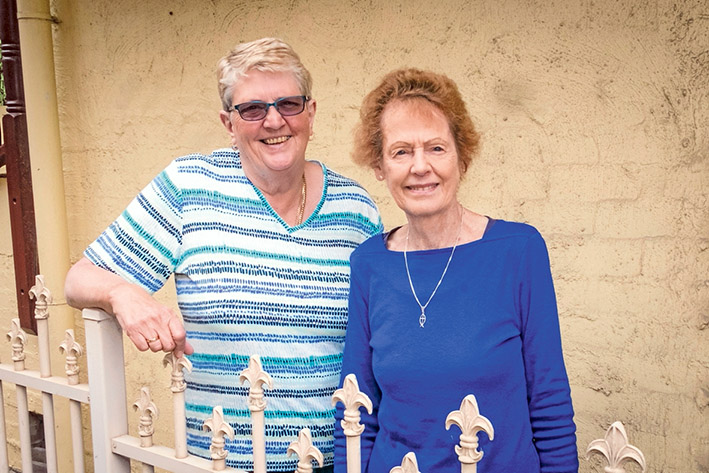
A GROUP of volunteers with experience of cancer have joined forces as “community champions” in a bid to improve Frankston’s low cancer screening rates.
The innovative community awareness program was launched last week by Cancer Council Victoria, South Eastern Melbourne Peninsula Health Network and Frankston Council, in response to data showing that screening participation rates for Frankston residents are among the lowest in the state.
The 12 volunteers come from Frankston and surrounds and have been trained to spread the word amongst family, friends and colleagues about the need for early detection and treatment.
Cancer Council data shows bowel cancer is Australia’s second-biggest cancer killer after lung cancer, but only 32.2 per cent of Frankston residents have participated in the national faecal screening program (FOBT), compared to the Victorian average of almost 38 per cent.
Bowel cancer is curable in 90 per cent of cases if detected early.
Breast cancer screening in Frankston is also below the state average, with only 49 per cent of residents having regular mammograms compared to the state average of 54.5 per cent.
Only 55.4 per cent of residents are regularly tested for cervical cancer, compared to a state average of 60 per cent.
Peter Harrison from the positive ageing team at Frankston Council said it is important for people to realise the importance of early detection.
“There are so many health issues to worry about as you get older, but our hope is that by getting a group of passionate people from Frankston together, we can make a difference to improve Frankston’s bowel screening rates,” Mr Harrison said.
“Our champions have all been touched by bowel cancer in some way and are motivated to encourage their fellow Frankston residents to do this simple, free test.”
Cancer Council Victoria screening manager Kate Broun said that most people should be doing the FOBT rather than having a colonoscopy to screen for bowel cancer.
“People who don’t have symptoms or a strong family history should be doing the FOBT, it’s a clean and simple process that only takes a few minutes to do that could save your life,” she said.
The FOBT kits are sent to eligible Australians aged over 50, who are the biggest risk group.
Health authorities provide free, two-yearly screening programs to eligible residents to test for bowel cancer, breast cancer and cervical cancer.
Anyone not covered by the national program can purchase a FOBT from Cancer Council Victoria online at cancervic.org.au/boweltest or call the helpline on 13 11 20.
FOBTs are also available through some GPs, pharmacies and health care funds.
Early detection the key
TWO of the women involved in an innovative cancer awareness campaign bring experience in education, health and illness to their roles as “community champions”.
At 82, Mornington accountant and Edithvale resident, Lois Dennington, has more energy than many people half her age. The Australian Masters swimming champion still works every day, swims regularly and works out at the gym twice a week.
But 20 years ago the future looked very different for Lois, who in her early 60s was diagnosed with bowel cancer and had to endure invasive surgery followed by six months of chemotherapy.
One of the “lucky” ones to rebound with a clean bill of health, the energetic octogenarian has used the time since to promote good, healthy living through Frankston Council’s ‘Positive Ageing’ programs, and now as one of the Cancer Council’s 12 community champions.
Ms Dennington takes her role to raise awareness of regular cancer screening very seriously and has been subtly, and sometimes not-so-subtly, bringing up the subject with friends, family and colleagues.
“It is a difficult subject – nobody wants to talk about poo, but I try to take the fear and embarrassment out of it,” she said.
“Back when I was diagnosed there wasn’t the easy option of a bowel screening kit you could do yourself, so it’s so much easier now and reliable.
“I feel that if you are in a position to help people, you do something about it.”
For Langwarrin resident, retired community nurse and fellow community champion, Diana Farmer, the message is clear.
“It’s an important conversation and I’m happy to talk to anyone about it – some people think it’s a bit yucky, but it’s not – it’s necessary,” she said.
During her time as a breast cancer support nurse and palliative care nurse, Ms Farmer has seen the terrible emotional and social costs of the disease.
“After working as a nurse, it’s really not difficult for me to talk about these things with people and if we, as people in the community, can change people’s approach to prevention and screening, that’s great,” she said.
“This country is very fortunate to have such excellent programs that raise awareness and give people a chance to do something about their health.”
